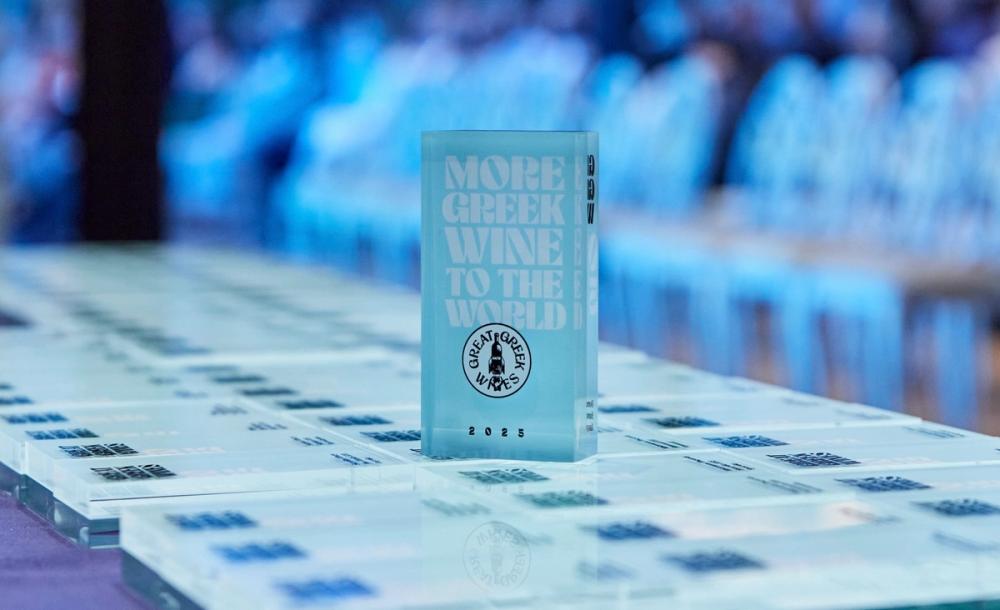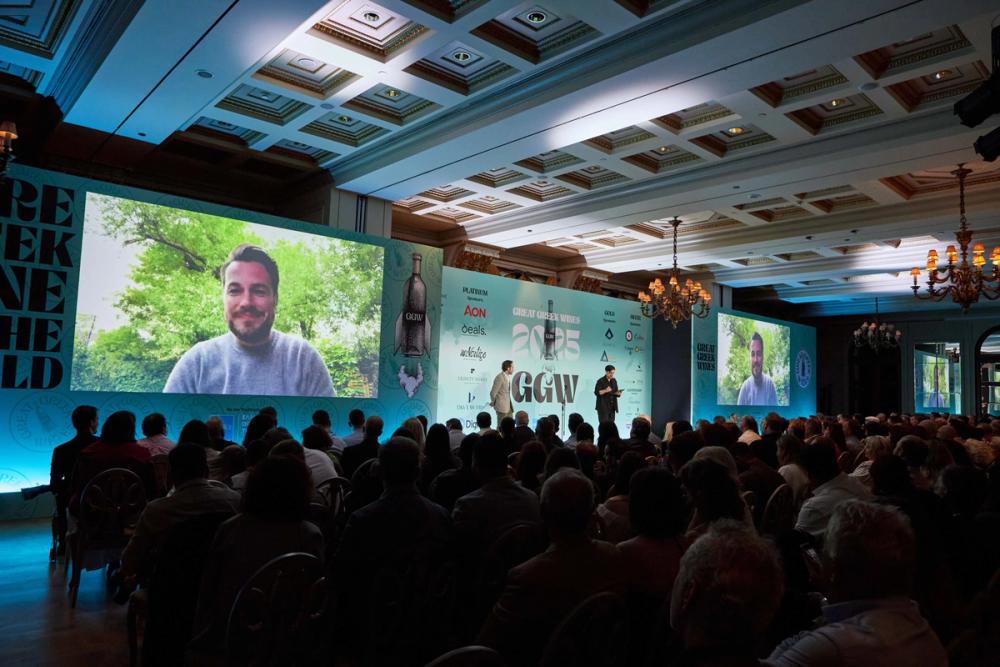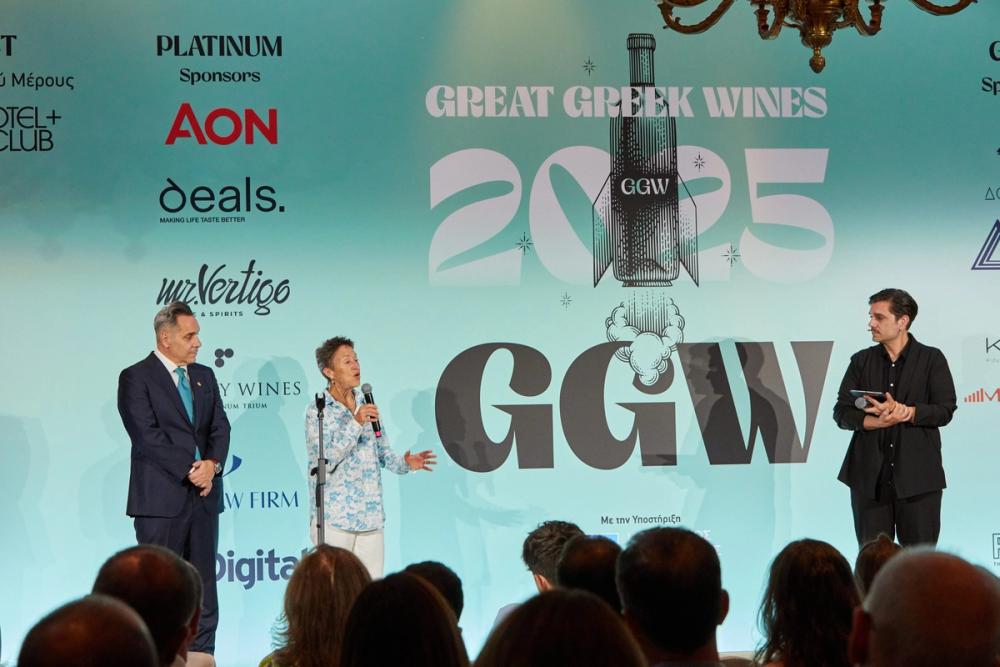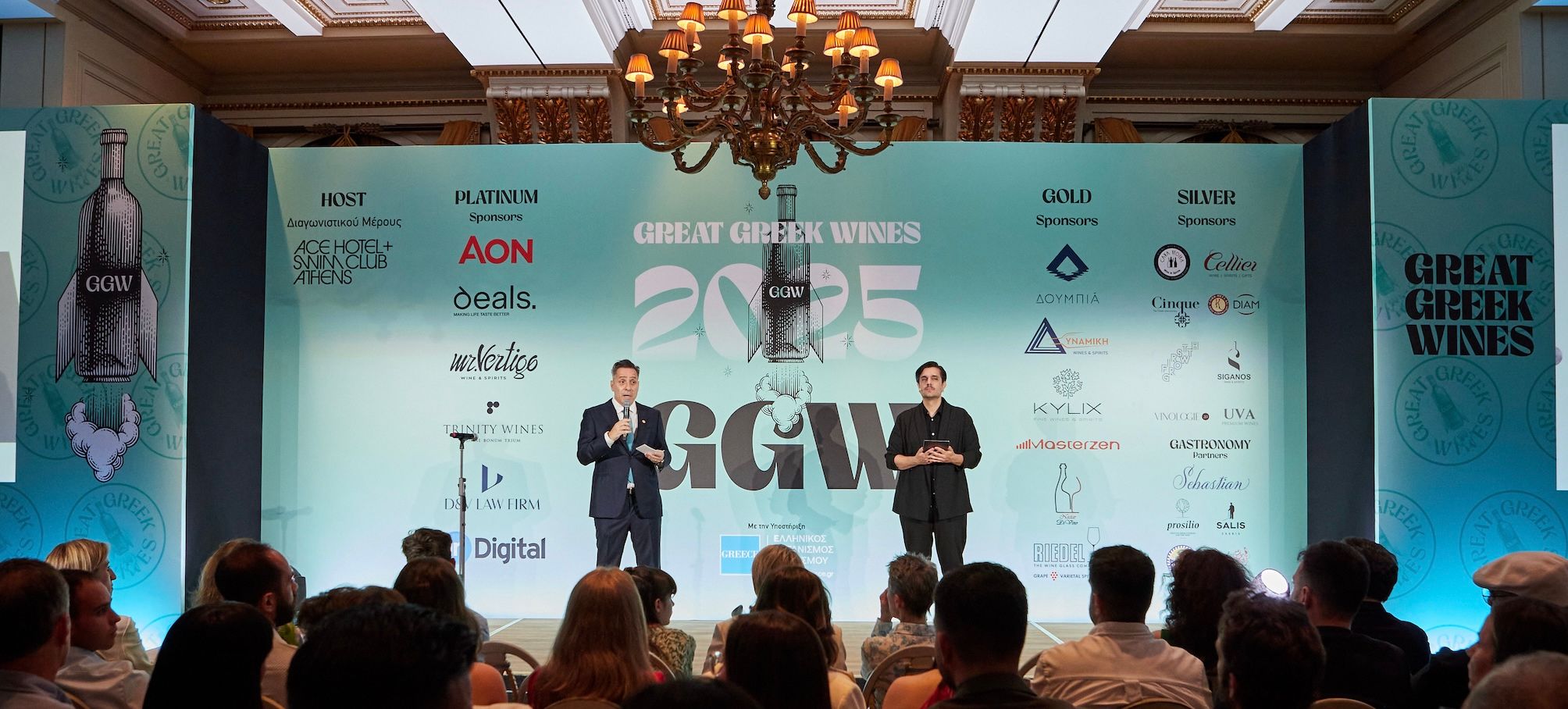You have just announced the winners in the Great Greek Wines awards – what would you pick out as the main themes to come out of the awards?
There isn’t a singular winner when it comes to variety or region, and that’s a story in itself. Yes, Santorini shines once again with 11 awarded wines, but the list extends far beyond.
Vidiano — originating not only from Crete but also from other regions — is making a strong impression. Xinomavro appears across nearly all PDOs, in various styles. Moschofilero made a notable comeback as the featured variety of the year. From well-known terroirs to emerging voices, the 2025 list narrates a story of diversity, authenticity, and upward momentum for Greek wine.

The Great Greek Wines Awards pick out only the top 10% of all the wines entered
Also while Greece may officially have around 1,200 winemaking tax IDs, the number of wineries truly active in the bottled wine market - those that export, invest in branding, and aim for quality - is much smaller. In reality, we’re talking about 300 to 400 producers who consistently shape the image of Greek wine both at home and abroad.
So when we say that 660 wines entered this year’s Great Greek Wines from 200 wineries, we’re not claiming to cover every label in the country, but we are offering a focused, thoughtful snapshot of what really matters right now. These are the wines that are out there, performing, evolving, and reaching new audiences.
Can you explain how you decide the winners and who is on the judging panel?
The winners are determined by the judges based on their individual and collective scores. We have two tasting tables and a rotating system among the seven international judges to ensure homogeneity and consistency. We are aware of potential variations between panels - one might be more generous, while another is more austere - so rotation is key to achieving balanced and reliable results.

The select group of international judges chosen to pick out the winners in the Great Greek Wines Awards
The panel itself is a carefully selected mix. Some judges, such as Lenka Sedlackova MW (Bancroft Wines), Mark Andrew MW (Noble Rot), and Wojciech Bonkowski MW, are repeat participants with fantastic depth of knowledge and passion for Greek wine. At the same time, we invite new faces—professionals who show genuine interest and can become ambassadors for Greek wine in their own markets, such as wine writer and critic, Peter Richards MW and sommelier Paz Levinson (Groupe PIC), who immediately became part of the GGW family alongside Christoff Heynen MW (Gustoworld) and Stefan Neumann MS (Fells).
What percentage of wines received an award, and would you like to see that increase in the future?
Approximately 10% of the 660 wines received awards and no, we don’t want that number to rise. The aim is not quantity, but impact. Each award must hold significance. That’s why we don’t sell stickers or distribute double and triple gold medals. The objective we have, together with Gregory Michailos, is to compile the most meaningful list possible. A list that tells stories and reflects true quality, rather than a participation trophy.
You changed the awards from the Top 50 to Great Greek Wines – why the rebranding?
The transition wasn’t made lightly and is a very subtle rebranding; actually, we dropped only the 50-something that we had in mind from day one, as our website was always greatgreekwines.com. “50GGW” was a solid starting point, but Greek wine has evolved -and so must we. The entries increased from 440 to over 660 this year. We didn’t want to be constrained by a number.
The name change reflects a more dynamic, inclusive, and forward-looking perspective, one that better represents the scale and diversity of Greek wine now.
You now also have categories for value and sustainability — can you talk about why that matters?

Noble Rot's Mark Andrew takes part in the awards for the Great Greek Wines Awards
We introduced ‘Great Value Wines’ as a separate list to highlight the best price-to-quality offerings under €17 (domestic market retail). It’s about demonstrating that excellence isn’t only found in premium bottlings. It can also be accessible and everyday.
The Sustainability Award aims to promote more sustainable practices. Therefore, producers are encouraged to reduce bottle weight and implement sustainable techniques. There are specific criteria for an award to be granted (bottle weight less than 420g, organic grapes, and use of renewable energy). We actually weighed all the wines that entered the list, and the bottle weight is noted next to each wine.
What do you hope this year’s awards can do to help promote Greek wine?
Simple: to start conversations. With sommeliers, chefs, wine writers and importers. We want people to talk, taste and explore- and maybe discover something unexpected. That’s how real progress happens.
Are there any particular styles, grapes or regions that stood out this year?
Absolutely. Vidiano continues to impress. Xinomavro demonstrated real versatility. Moschofilero proved it warrants a second look. Crete, Tinos, Santorini, and Kefalonia had standout performances. There was also a significant resurgence of modern, characterful Retsina that captured the judges’ attention. And I don’t want to forget Cyprus as the range was fantastic there as well.
You say the awards should be seen as a “working tool for the market” — what do you mean by that?

Julia Harding MW joined Yiannis Karakasis MW to host a masterclass of 12 wines that best illustrate the Great Greek Wines awards before the awards ceremony last month.
That’s the core of our philosophy. GGW isn’t just a list of winners - it’s a curated snapshot of what’s happening in Greek wine right now. It’s for sommeliers building lists, importers seeking new additions, and curious wine lovers looking to explore.
Our digital guide offers tasting notes, classifications, and insights. It’s a tool designed to be used, not merely admired or discussed. We look forward to implementing new tools and making everything more interactive.
What do you see as the big breakthroughs for Greek wine over the past five to 10 years?
Several things:
- A shift toward indigenous varieties.
- Refinement and clarity of red wine styles.
- The renaissance of Moschofilero.
- The rise of the islands — Crete, Tinos, and others.
- Stronger communication from passionate international advocates.
- And if I may say so, the emergence of GGW as a credible, independent voice that adds structure to the conversation.
What about the next five years — where do you see Greek wine going?
As a classic Hellene, I find inspiration in Cavafy’s “Ithaca.” The journey is what matters most. I believe the next five years will bring more dialogue, sharper identity, and new wine ambassadors. The destination isn’t the goal — evolution is.
Anything else you’d like to say?
Just a heartfelt thank you for the opportunity to share our story through your platform. We’re proud of what Greek wine represents, and we’re just getting started.
* You can find out more about the Great Greek Wines Awards at its website here.
* You can see the full list of winners in the 2025 awards here.
* You can see the winners in the Great Value wines here.
































